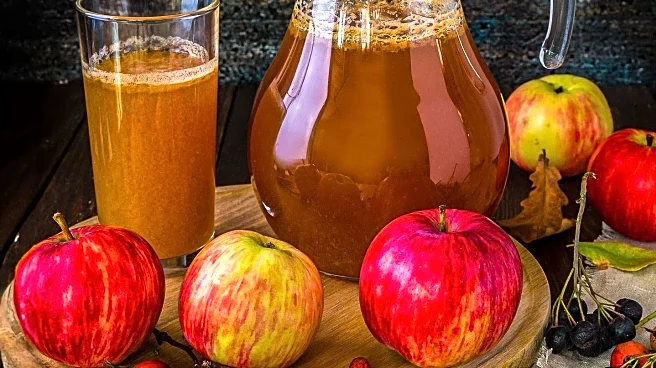What's Happening?
As Sober October begins, many individuals are attempting to abstain from alcohol for the month. Dr. Max Pemberton has highlighted six signs that may indicate someone is a functioning alcoholic. These signs include constantly thinking about alcohol, counting down the days until they can drink again, avoiding social gatherings where alcohol is present, experiencing foul moods due to withdrawal, breaking the rules of abstinence, and still desiring alcohol despite recognizing the benefits of sobriety. Dr. Pemberton suggests that these signs can help individuals evaluate their relationship with alcohol and potentially identify problematic drinking habits.
Why It's Important?
Understanding the signs of functioning alcoholism is crucial for individuals who may not recognize their dependency on alcohol. This awareness can lead to better self-evaluation and encourage individuals to seek help if needed. The broader significance lies in promoting public health and reducing alcohol-related harm. By identifying these signs, individuals can take proactive steps to address their alcohol consumption, potentially leading to improved mental and physical health outcomes. This initiative also supports societal efforts to reduce alcohol dependency and its associated risks.
What's Next?
As Sober October progresses, individuals are encouraged to monitor their thoughts and behaviors related to alcohol. Those who identify with the signs of functioning alcoholism may consider seeking professional help or support groups to address their drinking habits. Public health campaigns may continue to promote awareness and provide resources for individuals struggling with alcohol dependency. Additionally, the success of Sober October could inspire similar initiatives aimed at reducing alcohol consumption and promoting healthier lifestyles.
Beyond the Headlines
The cultural dimension of alcohol consumption is significant, as social norms often encourage drinking in social settings. Challenging these norms through initiatives like Sober October can lead to a shift in how society views alcohol consumption. This could result in more inclusive social environments where non-drinkers feel comfortable and accepted. Furthermore, the ethical implications of alcohol marketing and its impact on consumption patterns may be scrutinized, leading to potential changes in advertising practices.








